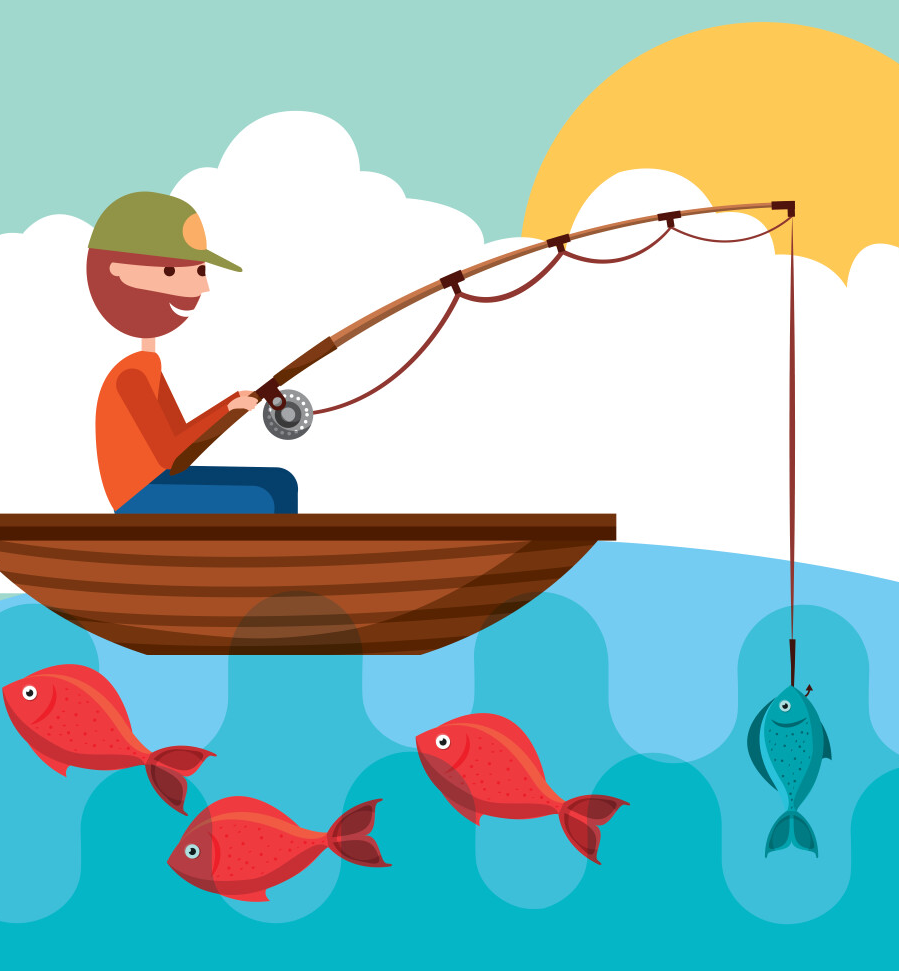Have you ever heard the term link baiting?
It’s pretty much exactly what it sounds like but in a different connotation…

Put on your imagination caps and roll with me. Imagine the above image is you fishing for websites to link to you. You’ve done all the work involved:
You know when and where to go out – AKA which industry you’re targeting.
You know the right type of bait – AKA you know which website you want and how to attract it.
And you have the technique to set the hook and reel them in – AKA what seals the deal so they link with your website.
See? It doesn’t seem as malicious as the name might entail. You’re “baiting” external websites so they come to you organically.
Now you’re headed to the market to sell your fish to a vendor. If you show up with good quality fish, you’ve set yourself as a strong fisherman. Why?
You’ve caught many fish with your efforts – AKA you didn’t buy the links or create them unethically.
Fish vendors can trust that you have good fish – AKA search engines know you have authority and your website has valuable information.
More people hear about your fishing skills – AKA you’ve shown that you know what you’re talking about and more people hear about you through the linked websites.
While there may be gaps in this analogy, the point stands that link baiting means you’ve done your research and it shows when external pages connect with yours organically. And if you know how to utilize your talents, you can continue to grow that network.
One Response
The little italics caught my eye in the H1 tag, that was a great use of that and I love the catching title to. If I had a website to link to this post, I absolutely would, your link bait worked well haha!